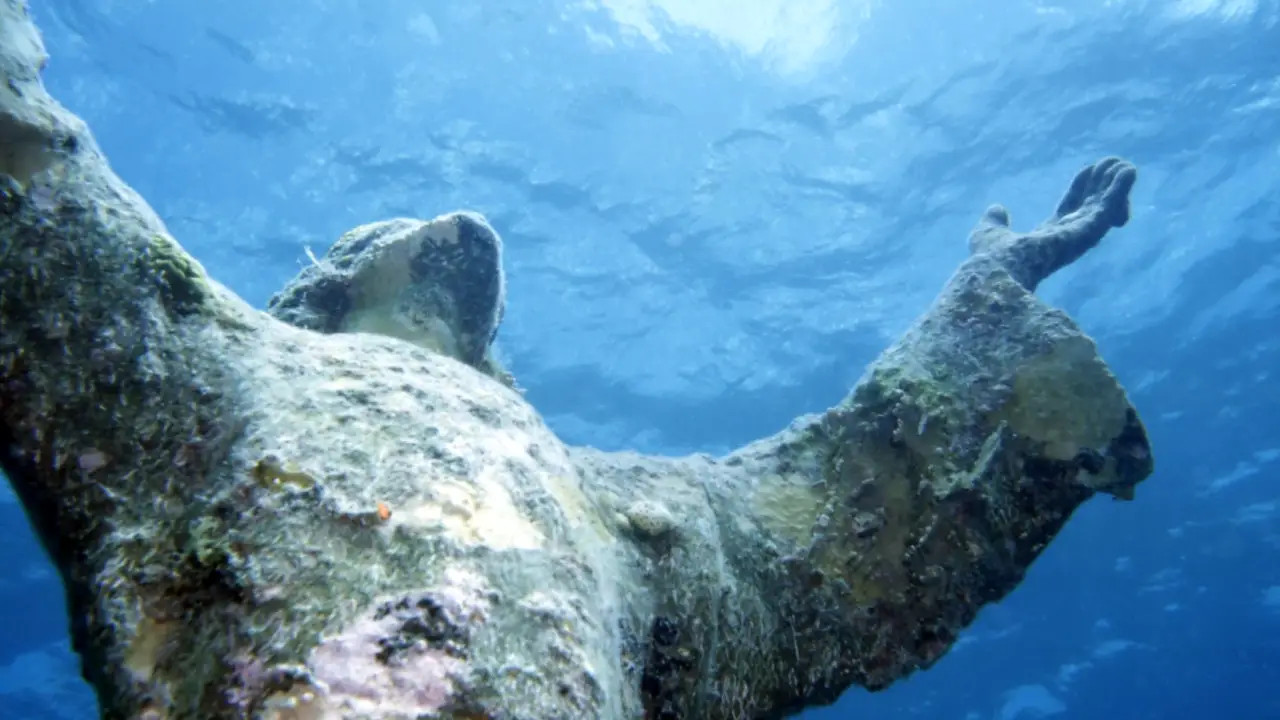This is part of an ongoing series of posts (Judaism, Christianity, Buddhism) outlining how the world’s major religions have traditionally viewed the environment and are putting those beliefs into practice today.
Type “Christianity environmentalism” into your favorite search engine and you could easily get the impression that the two are grossly incompatible, Christianity viewing environmentalism as being an existential threat to the core beliefs of the two millennia-old faith, a sure path to damnation. But that search-engine rooted view would be largely incorrect, an artifact of the vagaries of good Google-juice and loud minority voices within the religion.
In fact, both in scripture and modern practice, the mainstream of Christianity, regardless of denomination, has embraced environmental protection (including strong action on climate change) as something entirely compatible with the teachings of Christ and the church.
Before we take a closer look, I’ll issue a caveat: Christianity is an immensely broad faith, with some 2 billion-plus adherents. It’s larger than Islam by some 600 million people and is double the number of Hindus and people identifying as being secular, agnostic and atheist. Which is all to say, there are many different interpretations of the same texts out there, as well as differing amounts of emphasis paid to the environment.
God has created the world & looks over it
Christianity teaches that God has created all of existence and continues to actively care for it, but ultimately remains separate from it. According to Old Testament scripture, humanity has a special place in this creation, which has sometimes both historically and currently been interpreted as being a license for humans to exert a mastery over all over creatures and the planet.
The Alliance of Religions and Conservation cites a 1988 statement from the World Council of Churches as comment on this tendency and gives a good overview of a different interpretation of Christian metaphysics regarding the environment:
The drive to have “mastery” over creation has resulted in the senseless exploitation of natural resources, the alienation of the land from people and the destruction of indigenous cultures…Creation came into being by the will and love of the Triune God, and as such it possesses an inner cohesion and goodness. Though human eyes may not always discern it, every creature and the whole creation in chorus bear witness to the glorious unity and harmony with which creation is endowed. And when our human eyes are opened and our tongues unloosed, we too learn to praise and participate in the life, love, power and freedom that is God’s continuing gift and grace.
Psalms 104:25,30 expresses some of the uniqueness and expanse of creation:
In wisdom you made them all, the earth is full of your creatures. There is the sea, vast and spacious, teeming with creatures beyond number — living things both large and small. When you send your Spirit, they are created and you renew the earth.
And from Romans 1:20:
The Creator’s eternal power and divine nature, invisible though they are, have been understood and seen through through the things he has made.
But humans must look after it as well
In this light, current environmental problems can be seen as examples of human selfishness and greed, as signs of the human tendency to rebel against God. Through repentance and personal change a proper appreciation of and relationship with both God and creation can be brought about. Most briefly this can be summarized as a being stewards of creation.
This statement, again from the World Council of Churches, sums up this spirit:
The divine presence of the Spirit in creation binds us human beings together will all created life. We are accountable before God in and to the community of life, an accountability which has been imagined in various ways: As servants, stewards and trustees, as tillers and keepers, as priests of creation, as nurturers, and co-creators. This requires attitudes of compassion and humility, respect and reverence.
Again, among some denominations this view is far from being the dominant one, but as the following examples illustrate, older views of the Earth being created for human exploitation are being supplanted.
Vatican calls pollution a deadly sin, goes carbon neutral
At the highest level of the Roman Catholic church concern for the environment and recognition that climate change is a major threat to both the planet and humanity has taken hold. The Vatican has made great strides in its commitment to becoming a carbon neutral nation by installing solar panels on a number of buildings. It has urged caution against rapidly adopting genetically modified crops and has called pollution one of the most-deadly modern sins. Prior to COP15, Pope Benedict XVI issued a statement parts of which wouldn’t be much out of place in an environmentalist’s manifesto:
I hope that [COP15] will help identify actions that are respectful of creation and that will promote a joint development based on human dignity and for the common good. The integrity of creation requires the adoption of sober and responsible lifestyles, especially towards the poor and future generations.
Pope John Paul II himself published several papers on the importance of care for the environment.
Out to the more liberal and more conservation ends of the Christian spectrum, both putting belief into action on the environment:
Both liberal and conservation Christians recognize importance of ecology
Interfaith Power and Light, a campaign of the Regeneration Project, attempts to “help people of faith recognize and fulfill their responsibility for the stewardship of creation…the word ‘regeneration’ has personal, biological and institutional significance. It is the process of spiritual, moral and ecological renewal.”
When I asked IPL founder Rev. Sally Bingham back in 2009 about what’s required to bring about greater environmental change, she said that we must redefine what it means to be human. I summarized her thoughts:
When that transformation happens you naturally desire to have less of a detrimental impact. Seeing every single thing around you as interconnected, your mind considers the impact and consequences of your actions, on your neighbors and everything around you.
Though it may be tempting to lump all evangelical Christians into the same camp as the Glenn Becks of the world, evangelical Christians have been actively working for environmental protection for decades. Creation Care is a shining example of this, since 1993 promoting a viewpoint that emphasizes “the responsibility of God’s people to ‘tend the garden'” while at the same time urging people to “be faithful to Jesus Christ and to follow Him.”
Sustainable farming, social justice, rooted in one farmer’s faith
On to the real ground level, this video really hits on one farmer’s perspective on the connections between his Catholic faith, sustainable and heritage organic farming and social justice:
But there's more. Check out these bussin stories:
- Love Money Sex work
 6 ways to get what you want from your older man without having to put out (too much) There's nothing wrong with dating wealthy older men. Here's a grab bag of tricks you'll want to have handy.
6 ways to get what you want from your older man without having to put out (too much) There's nothing wrong with dating wealthy older men. Here's a grab bag of tricks you'll want to have handy. - For the guys Love
 If you like your game more than your girlfriend, you’re an asshole Reality check for manchildren.
If you like your game more than your girlfriend, you’re an asshole Reality check for manchildren. - Love
 30% of couples already do it: join the separate beds revolution Couples who share a bed often don't fully enter the necessary deep stages of sleep—and suffer the many, terrible consequences.
30% of couples already do it: join the separate beds revolution Couples who share a bed often don't fully enter the necessary deep stages of sleep—and suffer the many, terrible consequences.


